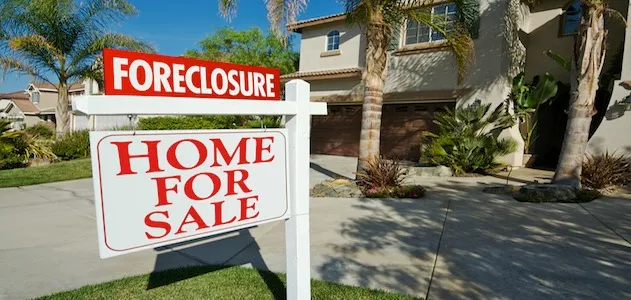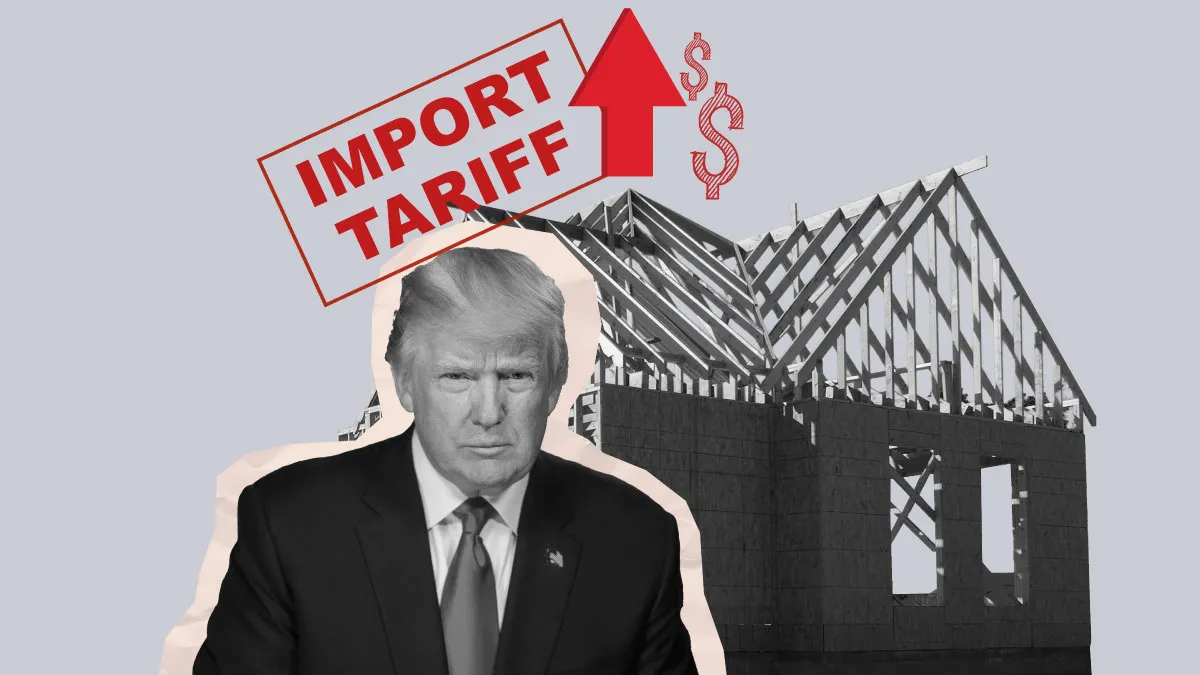What do the D.C. attorney general’s actions mean for the future of title joint ventures?

For more than two years, a storm has been brewing in the title insurance industry. Last week, the first raindrops began to fall when the Office of the Attorney General for the District of Columbia (OAG) announced settlements with four title firms over alleged kickback schemes.
As a result of the settlements, Allied Title & Escrow LLC, KVS Title LLC, Modern Settlements LLC and Union Settlements will collectively pay more than $3.2 million.
The four firms in question all had joint ventures (JVs) or affiliated business arrangements (ABAs) in which real estate agents, who were also business referral sources, were investors. As part of the settlement, the firms agreed to end the practice of giving real estate agents consideration for the referral of title insurance business, and they will cease their title insurance operations in Washington, D.C., or divest real estate agents from their ownership interests.
Opposing viewpoints
Typically, when kickbacks are discussed in the real estate industry, the Real Estate Settlement Procedures Act (RESPA) takes center stage, but that was not the case in D.C.
District Attorney General Brian Schwalb brought the action under the District of Columbia Code, which states that a title insurer “shall not give or receive, directly or indirectly, any consideration for the referral of title insurance business or escrow or other service provided by a title insurer.” Unlike RESPA, the D.C. code does not contain a carve-out provision for joint ventures or affiliated businesses.
Because these title firms were all licensed by the D.C. Department of Insurance, Securities and Banking, many in the title industry are frustrated by Schwalb’s actions.
“The DC AG applied § 31–5031.15. Prohibition of rebate and fee splitting … which is in the Underwriting part of the code (Chapter 50A), not the Title Producer (Agency) part of the code (Chapter 50B). The JVs were title agencies, not underwriters,” Ken Trepeta, executive director of the Real Estate Services Providers Council (RESPRO), wrote in an email.
“Both Chapter 50A and 50B authorize the enforcement of RESPA which implies RESPA and all of its section (and exemptions) are valid in DC. Otherwise, they would have had additional language limiting RESPA. So, I don’t think what the AG did is in the spirit of the law and is certainly not in line with what the Department of Insurance has done over the years.”
Todd Ewing, the founder and CEO of D.C. area-based Federal Title & Escrow, feels that the news is “another black eye” for the industry, saying “it was just a matter of time before the DC OAG brought enforcement actions.”
“Overall, I think the industry should be applauding the actions taken by the OAG to help clean up the industry,” Ewing said. “From our perspective as an independent title company that doesn’t participate in these sham arrangements — and I do recognize that these arrangements can be done legally and we aren’t opposed to those that are compliant — but I think it is high time that the industry recognizes that there are some bad actors out there who don’t run their affiliated businesses or joint ventures correctly. And a lot of people in the industry feel they are distorting the marketplace and gaining an unfair competitive advantage.
“I think a lot of people forget that these statutes that are consumer protection statutes, like the D.C. statute or RESPA or the Consumer Financial Protection Act, are intended not only as consumer protection statutes but also market protection statutes that protect against unfair trade practices,” he added.
He went on to say that he does not feel the D.C. statute was misapplied. “I’ve seen the council’s legislative history, and it could not be clearer that the intent of the statute was to protect consumers in this way,” Ewing said.
’Lack of clear boundaries’
Regardless of the view one takes on enforcement, everyone appears to agree that the absence of the Department of Insurance in this case was a bit surprising. But as industry and compliance experts noted, enforcement actions can come from a variety of places.
Although the D.C. attorney general can bring action against a company even if it falls under the jurisdiction of another department — especially if that department requests the OAG’s intervention — sources told HousingWire it is unclear whether the Department of Insurance requested the OAG to take action.
“This is where there is widespread concern about regulation enforcement, as there is a lack of clear boundaries,” said Chuck Cain, a senior vice president at Fidelity National Financial. “It makes is very difficult for businesses to operate, as they can operate under known rules and known enforcement, but when you don’t know where the sidelines are, how do you know if you are in bounds or not?”
Cain noted that while title companies may expect actions to come from an insurance regulator, they could come from the attorney general’s office as was the case in D.C., the Consumer Financial Protection Bureau (CFPB) or even their state’s real estate commission.
“I think it is certainly alarming for everyone who is in the affiliate business world,” Cain said. “You have to be very mindful of state law, state regulations and the mood of the regulators in those states. Because you’ll have some states like Texas, where you know the department of insurance is an extremely vigorous regulator, and then you have Kentucky where there isn’t even a licensing requirement in regard to title insurance there.”
Jeff Ehrlich, the former deputy enforcement director at the CFPB and an attorney at McGuireWoods LLP, noted that in D.C., the Department of Insurance cannot repeal a law enacted by the D.C. Council.
“It is also worth noting that JVs between title companies and real-estate agents are not necessarily unlawful; only those that give consideration for referrals violate § 31-5031.15,” Ehrlich wrote in a post on LinkedIn. “Thus, a JV could comply with the D.C. Code by deducting from the agents’ distributions any profits derived from the agents’ referrals.”
According to Ehrlich, none of the joint ventures or affiliated businesses operate this way as it would “defeat the point” of the firms, which he claims is for real estate agents to get paid for steering consumers to certain firms.
“If the JVs did not compensate the agents for their referrals, the agents would no longer steer their customers to the JVs, and the whole corrupt scheme would collapse,” Ehrlich wrote.
Level of capitalization
While Ehrlich agrees with the actions brought under the D.C. Code, he believes that based on the comments made by the attorney general’s office, the actions could have been brought under RESPA as well. He is not the only one who thinks so.
At the center of this debate is the level at which some of the firms were capitalized. Under RESPA and the Unfair, Deceptive or Abusive Acts or Practices (UDAAP) compliance best practices, joint ventures and affiliated business arrangements should be capitalized to operate for four to six months, assuming that no profits are made.
Francis “Trip” Riley, a partner at Saul Ewing LLP who represented Allied Title & Escrow, noted that the firm was capitalized at $60,000, which he claims “was the amount needed to stand up the agencies and operate it for three to four months as if no revenue was being received during that time.”
“Why would it need to be more?” he said in an email. “If the [affiliated business] was a wholly owned subsidiary of say a lender, does DCOAG’s discounted assertion mean that the lender needs to invest more than the amount needed to stand up and run the title agency for 3 to 4 months? If so, why and where’s the authority for that?”
Ewing of Federal Title & Escrow is one who believes that firms like Allied were capitalized far below fair market value.
“I’ve been doing this for 30 years, and if I were to start a new title company, servicing the same volume of business as some of these sham title companies, the capitalization costs would be at least 10 times the amount of capitalization identified in the OAG’s findings,” Ewing said.
He also recommended that anyone interested in entering into a JV or ABA have outside counsel review the business arrangements and offer an opinion on whether they believe it is a fair investment.
The attorneys and title professionals consulted by HousingWire consulted for this article would not specify an amount they believe to be adequate for capitalizing a joint venture.
“It is kind of a can of worms in the industry in the sense that there is no good guidance on what is OK,” said Trepeta of RESPRO. “It almost needs to be statutory and, actually, we did that in Utah when we reformed the affiliated business laws there a few years ago.”
Gray area risks
In addition to adequate capitalization, RESPA experts noted that for firms to be established and operate in a compliant manner, they also need to have their own office space and employees.
“None of those things are required by law, which is really the interesting part of this,” said Loretta Salzano, the president and founding partner at Franzen & Salzano LP. “Under the law, you have to give a timely and accurate disclosure of what your relationship to the affiliated business or joint venture is, and you can’t require them to use the affiliate or tell them if they don’t the transaction won’t close.”
Additionally, Salzano noted that profits or dividends generated by the affiliated business can only be distributed based on investment share and not the number of referrals.
Given the large amount of grey area surrounding how RESPA and similar state statutes are interpreted and enforced, it is understandable there are differing views on what the D.C. attorney general’s actions mean for the future of real estate agent and title insurance joint ventures and affiliated businesses, both locally and nationwide.
In his LinkedIn post, Ehrlich referenced a title industry attorney who anonymously stated that the way the “D.C. attorney general is applying this new interpretation, basically makes all affiliations in D.C. illegal.”
“Indeed, any title company or real-estate agent who participates in a joint venture in the District of Columbia risks being on the wrong end of an OAG enforcement action,” Ehrlich wrote.
But others don’t quite feel that way. Riley of Saul Ewing noted that the enforcement action means that all affiliated businesses can continue to operate in D.C., but as he sees it, “none of the profits from D.C. revenue can be part of the profit distribution.”
“Some will simply stop doing business in D.C.,” he added.
Ripple effects
So far, enforcement actions have only been undertaken in D.C., but industry experts believe other states may follow suit.
“It is possible other jurisdictions could apply non-RESPA statutes (if they have them) to attack RESPA compliant JVs but they have not done so, so far,” Trepeta wrote. “Other jurisdictions focus on RESPA and its associated best practices when scrutinizing JVs.
“The long-held assumption is that unless specifically contradicted (for example, Utah caps the amount of business a JV can get internally at 70%) then RESPA rules, exemptions and best practices apply.”
But Trepeta agrees that given the D.C. attorney general’s clear stance against real estate and title joint ventures, it would be unwise to attempt more of these types of business structures in the future.
Looking at the rest of the country, industry professionals told HousingWire they expect to see settlements or other enforcement actions taken in Pennsylvania, Michigan, Maryland, New York and Arizona.
“When people engaged in affiliated business, they need to be very, very mindful of state laws and state requirements,” Fidelity National’s Cain said. “RESPA is a federal law, but if a state has a greater restriction than RESPA may lay out, then the state law supersedes.”
In addition to action in other jurisdictions, Cain is anticipating more enforcement in D.C.
“Generally, I don’t think the D.C. regulator is done,” Cain said. “They may be done with title, but I think their next stop is that they are going to look at mortgage entities where referrals of business, such as real estate professionals, have ownership interest.”
Riley shares a similar view.
“The next question is whether DCOAG will go after title agencies owned by banks, non-depositor lenders, developers, who would seem to have the same steering capabilities that the DCOAG seems to think agent investors are doing,” Riley wrote.
“Then, what about mortgage lenders and brokerages whose owners are agents and the others I just mentioned? While there is no licensing anti-kickback code like the one alleged by DCOAG to apply to title agencies and underwriters, the DCOAG also cited to DC’s consumer protection code (UDAAP) to have alleged these ABAs allowed for deceptive actions.”
If other jurisdictions do take action, Ehrlich said it should not be a surprise.
“Congress anticipated that states might impose greater restrictions on settlement-services providers, and RESPA specifically allows for this. While RESPA preempts inconsistent state laws, it also provides that a state law is not preempted if it ’gives greater protection to the consumer,’” Ehrlich wrote.
As the title industry looks ahead to a variety of other challenges — including new anti-money laundering reporting rules, the growing prevalence of attorney opinion letters, the Federal Housing Finance Agency’s title waiver pilot program and the CFPB’s interest in possibly changing who pays for a lender’s title policy — some view the D.C. attorney general’s action as a continuation of these obstacles.
“The title industry is really being attacked right now,” Salzano said. “Of course, there is a big movement to lower closing costs for homeowners so that more people can get into a home — which is fabulous, and we would all like to lower costs — but it is my understanding that there are studies and evidence that demonstrate that affiliated business arrangements do not result in higher prices.
“So, I think this attack on the industry is unfounded and that there are very legitimate protections to be gained from title insurance. And getting rid of it won’t necessarily help all the people they are trying to help.”
Marx Sterbcow, the managing attorney at Sterbcow Law Group, agrees with Salzano. He feels that to a certain extent, these actions are being used to scare title firms. He also noted that many in the industry who feel these firms did nothing wrong lack clarity on why the attorney general’s actions were taken. To fill this void, Sterbcow has looked at tweets issued by Schwalb.
“DC has the highest housing closing costs in the country,” Schwalb wrote in a post in late August. “We need fair competition between title insurance companies to ensure District residents get a good deal.”
“Everything is about consumers paying high title insurance premiums,” Sterbcow said. “That is all we keep hearing from regulators and enforcement staff, but what does that have to do with a title insurance joint venture?”




